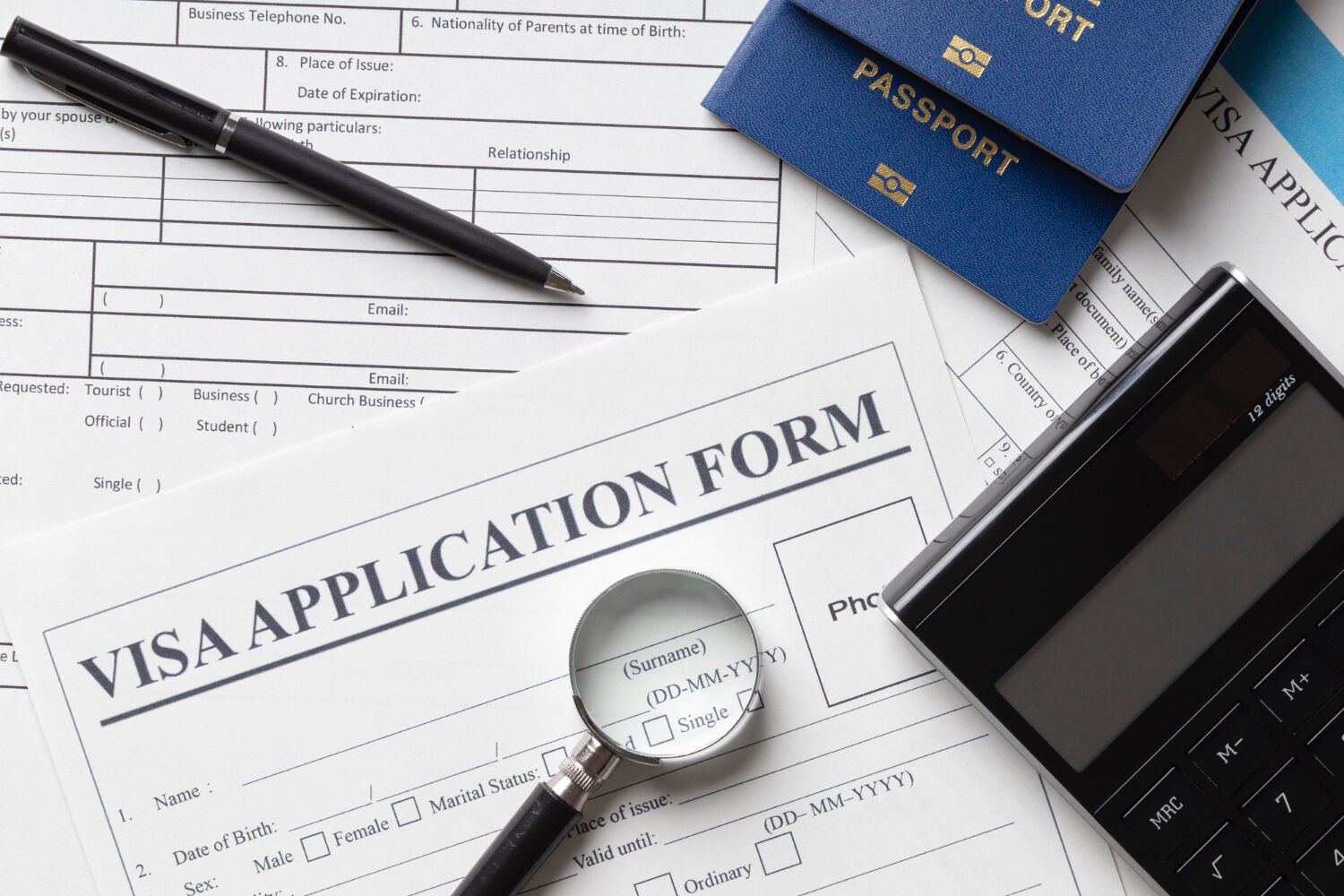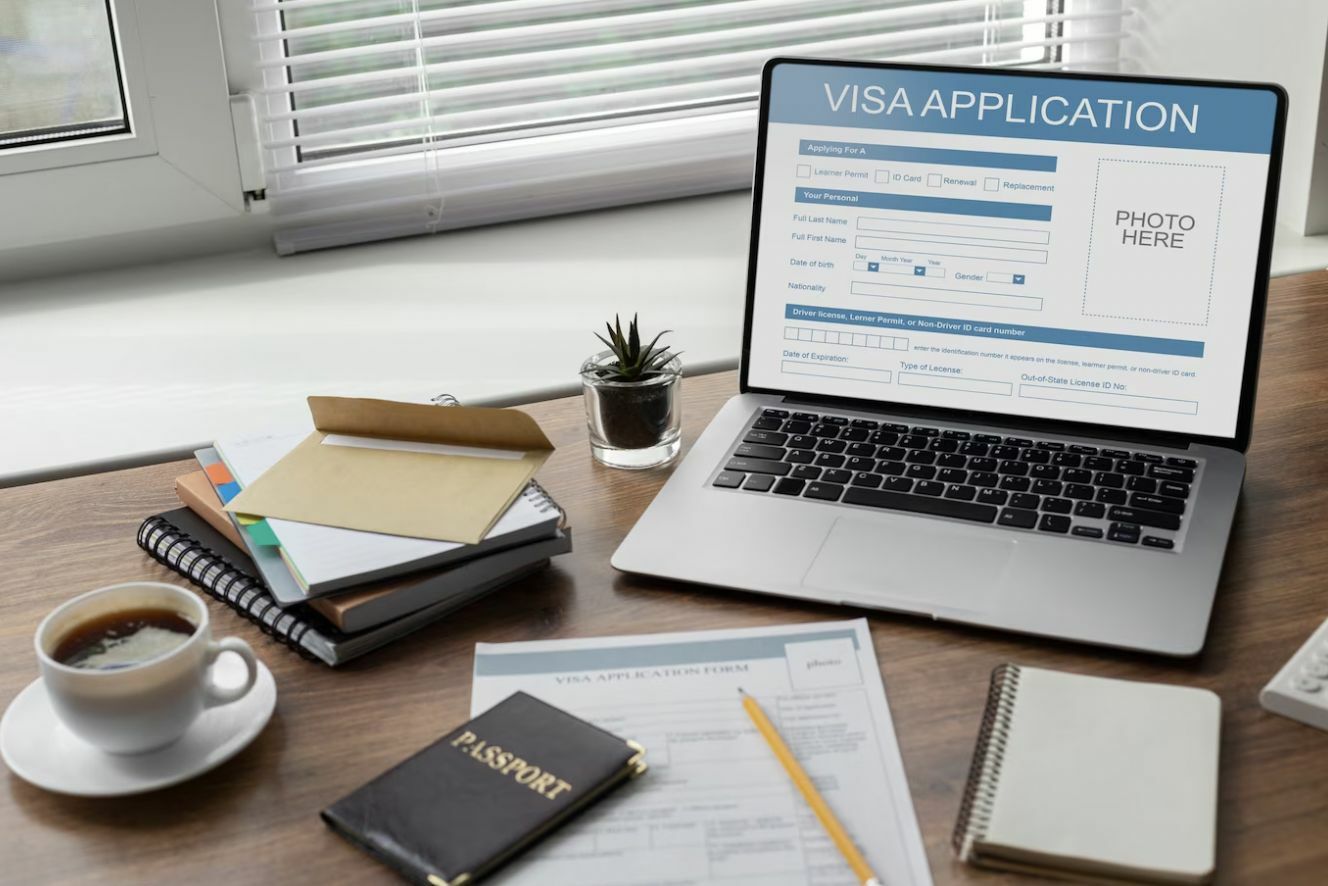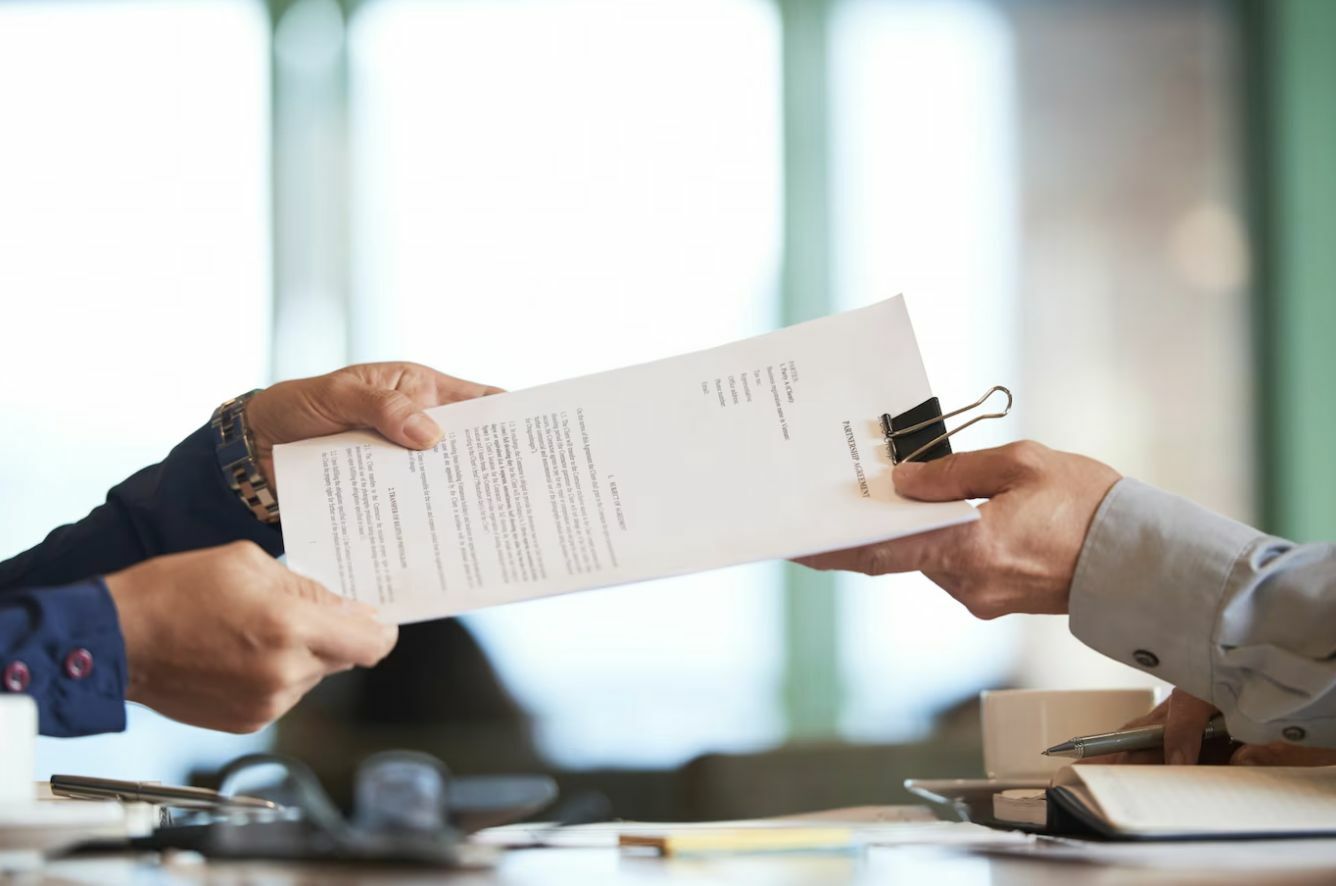How to obtain a work permit in Thailand

So you’ve landed your dream job in Thailand, or maybe you’re just toying with the idea of packing your bags and working or opening a business in the Land of Smiles. Regardless, understanding the process of working legally in Thailand can be confusing, especially when it comes to getting working permission in Thailand. So to help you out, here’s a step-by-step guide to getting a work permit in Thailand.
What is a work permit?

A work permit is a critical document for any foreigner who wishes to legally work or establish a business in Thailand. This piece of paper doesn’t just allow you to work and operate a business as a skilled professional or an employer, but it also clearly outlines your current role, job description and the Thai company you’re associated with.
Furthermore, this permit also functions as a license to carry out a job or an occupation permissible for foreigners within Thai boundaries. As you probably already know, foreigners aren’t allowed to work in Thailand upon arrival, regardless of the type of visa they possess. As a foreigner, you must obtain the right type of visa, like a non-b visa or a non-O visa based on marriage, to be eligible to apply for a work permit.
Crucially, the absence of a work permit isn’t something to take lightly. Working without a Thai work permit can lead to particularly serious consequences. In fact, a foreigner caught working sans permit might find themselves facing a hefty fine or even imprisonment.
What are the requirements to obtain a work permit in Thailand?
If you’ve set your sights on applying for a work permit in Thailand, you’re going to need to tick some boxes. Not just you but the company you’re planning to add your talents to will also need to square off some specific requirements.
1. Company requirements

The success of your work permit application doesn’t depend solely on you but also on the registered capitalization of the company that’s hiring you.
- If the company is registered in Thailand (Thai Business Entities) and wants to apply for a work permit for a foreign employee, it must have at least two million baht fully paid-up registered capitalisation. If the foreign employee the company wants to hire is married to a Thai national, on the other hand, then it only needs one million baht in capital.
- If the company is a foreign company, meaning it’s not a registered company in Thailand (Foreign Business Entities), and it wants to apply for a work permit for a foreign employee, then it has to have at least three million baht in capital for each employee it wants to get a work permit for.
In either scenario, all companies can only lay their hands on a limited ten work permits and must already have four Thai employees on their books before bringing in a foreign worker.
However, these rules don’t apply if the company gets support from the Thai Board of Investment (BOI). These companies are exempt from these requirements and can hire foreign employees without worrying about the capital they have or how many Thai workers they have. But, this is only valid if the foreign employees meet the minimum requirements set by the BOI and the company can justify why they need a foreign employee.
2. Employee requirements

In order to be eligible for a work permit, there are certain requirements you need to meet.
In general, you need to have a job offer from a company that meets the requirements above or start a company that meets the criteria. You’ll also have to make sure the job you’re doing is not prohibited for foreigners. You’ll need to bring your skills for the job you’re applying for, typically have a bachelor’s degree and some on-the-job experience. Moreover, you must have a non-immigrant visa. Health-wise, it’s important that you’re relatively fit, which means you don’t have any severe illnesses or addiction issues.
But what if you don’t have a degree? Well, while the official stance indicates a ‘no’ for obtaining a work permit without a degree, there have been instances where agencies have secured work permits for their teaching staff. In some specific scenarios, teachers at government schools in remote areas have faced no difficulties at all. So if you’ve been browsing how to get a work permit in Thailand without a degree, the answer might boil down to connections and being at the right spots at just the right moments.
What are the steps to obtain a work permit in Thailand?
Now that you know the requirements, here’s the step come next:
Step 1: Apply the correct visa type

As mentioned before, you need a non-immigrant visa before you can apply for a work permit in Thailand. You can get this visa in your home country, in a country near Thailand, or even when you’re already in Thailand.
If you want to obtain your visa from outside of Thailand, here are the requirements:
- You have been offered a job or started a company in Thailand to employ yourself.
- The company should request a non-immigrant visa for you, allowing them to apply for your work permit.
- The company must strongly vouch for you to be respectful of Thai culture and steadfast in abiding by Thai law.
- The company should prepare copies of registration documents and financial statements.
It’s wise to plan ahead and make sure you apply for your visa well in advance of your anticipated move to Thailand. Ideally, you should apply for your visa within 30 days before your departure to Thailand. This gives you enough time to process everything and makes sure you can start your journey to Thailand with all the necessary documents ready.
There are a few different non-immigrant visas you can get, but the most common are the non-immigrant visa B and non-immigrant visa O. Let’s look at your options.
Non-immigrant visa B
The Non-Immigrant Visa B, also known as a work visa, is the most common option among people who want to work in industries such as education, in a multinational corporation, or in other roles acceptable for foreigners in Thailand. It’s also the go-to choice for those who want to conduct business in Thailand.
Non-immigrant visa IB
The Non-Immigrant Visa IB is designed for foreign nationals who have the intention to work on projects or for companies that have received a promotion from the Board of Investment of Thailand (BOI). These are the projects or companies that provide specific benefits to Thailand and are approved by BOI.
Non-immigrant visa M
The Non-Immigrant Visa M, or media visa, is for those aiming to work in the media sector in Thailand, which includes careers in print, online, or television. This supports roles such as news reporters, film producers, and media correspondents associated with foreign news agencies. These individuals could be contributing to newspapers, magazines, television, radio, or online outlets.
It’s important to remember that the media visa is specifically for those working for foreign news agencies. If you’re a journalist working for a Thai media company, you should apply for the non-immigrant visa B. Moreover, journalists with short-term assignments will also need to look towards obtaining a non-immigrant B visa.
You can apply and get your one-year media visa online via the MFA Media Online Service website.
Non-immigrant visa O
The Non-Immigrant Visa O is the one to go for if you plan on volunteering, marrying, or retiring in Thailand. If you’re working in Thailand and want your family to join you, they’ll also need this exact visa.
However, this type of visa only grants the privilege of obtaining a work permit to foreigners who are married to Thai citizens and to those committed to volunteer work. Therefore, if retirement is your aim, obtaining a work permit with this visa isn’t an option.
Step 2: Apply for the work permit

So you’ve met the requirements to obtain a work permit in Thailand, and your next step is to apply for it. To do this, you’ll need some documents. It’s worth noting that the required documents can change over time, so a quick check-in with the Ministry of Labour or the Board of Investment is always a great idea to ensure you’re on the right track.
Employee documents
Here’s a list of the documents you need to submit along with your work permit application:
- Passport with copies of every page, all signed
- Non-immigrant visa
- The TM.6 departure card
- Signed copies of your education degree
- Signed copies of your transcript
- If you have any signed certificates or licenses
- A copy of your CV or resume that tells about your past jobs, what you did there, how long you were there, and where it was
- Three photos that are 5 x 6 cm (not passport photos). These photos must show all your face, you must be wearing business clothes (some jurisdictions may require a suit and tie), and they shouldn’t be older than six months before you apply for the Thai work permit.
- If you’re married to a Thai national, you’ll need your original marriage certificate and signed copies that have been signed. You’ll also need to bring your partner’s Thai ID card, your children’s birth certificates, if you have any, and household registration.
- Medical certificate issued in the last 30 days. You can get one from any clinic or hospital in Thailand. All you have to do is tell them that it’s for a work permit.
Keep in mind that Thai government officials might ask you to get your documents certified by your home country’s embassy. This means that you might need to take your degree, CV, licence or certificate to your embassy to confirm that these are true and original. You would usually need to pay a fee for this service. Plus, the government officials may also ask you to have these documents translated from your language into Thai.
Company documents
The following are the documents your employer needs to submit with your work permit application:
- A certificate from the Commercial Registration Department that confirms the company you’ll work for is actually registered as a legal business, along with the names of its directors, what it does, and how much its registered capital is
- A certified list of the company’s shareholders from the Commercial Registration Department
- A Factory License from the Ministry of Industry’s Factory Department, if necessary
- A VAT Certificate or Phor Phor 20
- VAT filing, or Phor Phor 30
- Withholding Tax record, or Phor Ngor Dor 1
- Social Security Payment filing
- An employment contract that states your position, what tasks you’ll be doing, your salary, and how long your contract is for.
The Thai government has specific requirements when it comes to paperwork. Each page of every document needs to have the company’s seal, along with the signature of the Managing Director and/or Director(s) next to the seal.
The process and where to go

To apply for a work permit, gather all the necessary documents and head to the Ministry of Labour. After this, visit the Bangkok Immigration office to extend your visa to either one or two years.
But, if a BOI-promoted company employs you, the process is a bit different. Go to the One-Stop Service Center at Chamchuree Square. There, you can extend your Non-immigrant visa B on the same day you make your work permit.
Just remember that before you visit the One-Stop Service Center, the company must first get approval from the BOI.
If you’re not in Bangkok, don’t worry. You can go to your local, provincial labour office instead.
The cost
Before proceeding with a work permit, a non-immigrant visa is necessary. The cost for a single-entry visa stands at 2,000 baht, and for those requiring multiple entries, the fee is 5,000 baht.
Regarding the work permit, the application procedure involves several government fees:
- An initial application fee of 100 baht
- A fee of 750 baht for work permits valid for three months
- A fee of 1,500 baht for work permits ranging from three to six months
- A fee of 3,000 baht for work permits valid for twelve months.
It’s true the process may seem daunting at first glance, but don’t let this deter you. It’s just a matter of following protocol, creating an inventory of tasks and ticking them off systematically. After all, this slight bureaucratic ordeal is a small price to pay for the privilege of living and working in the delightful Land of Smiles!
Example of frequently asked questions about a work permit in Thailand
What happens if I change jobs?
You’ll need a new work permit tied to your new employer. The existing permit needs to be cancelled, and a new application process initiated.
Can I bring my dependents with a work permit?
Yes, with certain types of non-immigrant visas (like the B Visa) you may be able to obtain visas for dependents such as spouses and children.
These are only the examples of frequently asked questions, you can check out “Work permit FAQ” to see more essential information.
Latest Thailand News
Follow The Thaiger on Google News:


























